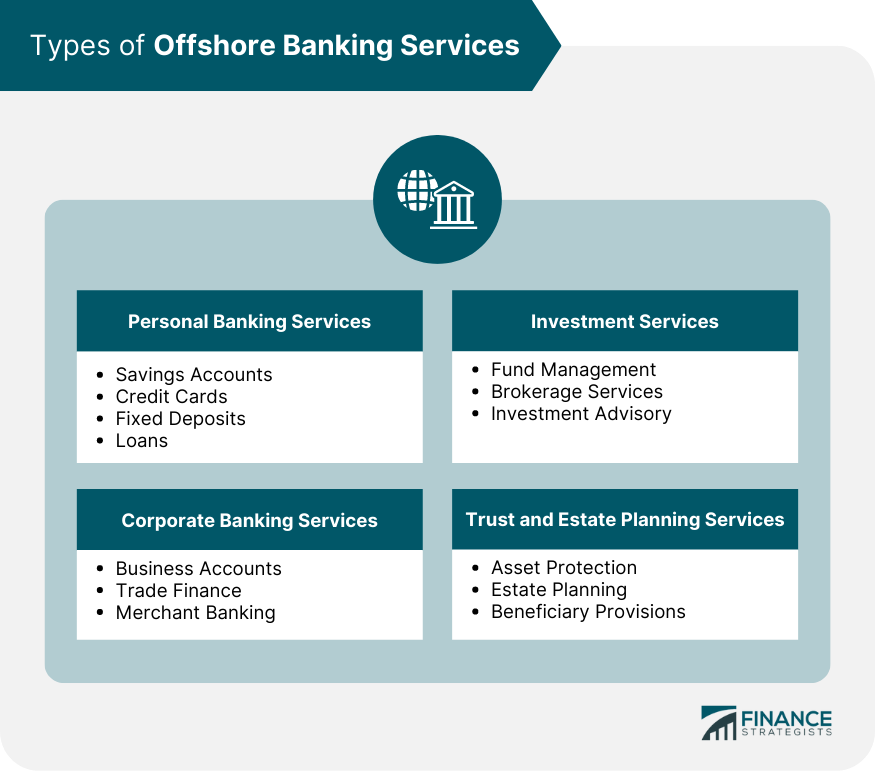Exactly How Offshore Company Formations Work: A Step-by-Step Summary for Entrepreneurs
Offshore business formations can offer significant benefits for business owners seeking tax optimization and asset security. The procedure entails several essential steps, starting with mindful territory selection and comprehensive paperwork preparation. Involving professional solutions is essential for conformity. Nonetheless, lots of ignore the continuous obligations that adhere to initial registration. Recognizing these complexities can make a significant distinction in leveraging offshore chances efficiently. The next actions are important for long-lasting success.
Comprehending Offshore Companies: What They Are and Why They Matter
Although the principle of overseas companies may seem facility, recognizing their fundamental nature and significance is important for both services and individuals looking for to optimize their financial approaches. Offshore companies are entities registered outside the person's nation of residence, typically in territories that offer beneficial regulatory environments. These businesses can supply various advantages, such as tax obligation optimization, property protection, and improved personal privacy.
For entrepreneurs, establishing an offshore company can assist in international trade, reduce operational costs, and broaden market reach. Additionally, overseas companies commonly permit streamlined conformity with worldwide laws. Individuals may likewise use offshore frameworks to safeguard individual possessions from political or financial instability in their home nations. Ultimately, the allure of offshore business hinges on their capacity to boost economic flexibility and supply critical benefits in a significantly interconnected international economy - Offshore Company Formations. Recognizing their operational structure and benefits is crucial for making informed choices
Picking the Right Jurisdiction for Your Offshore Company
Selecting the ideal jurisdiction for an overseas firm is critical for taking full advantage of tax obligation benefits and making certain compliance with regional policies. Different territories use varying tax incentives and regulatory environments that can substantially influence company operations. Subsequently, a careful evaluation of these factors is important for educated decision-making.
Tax Obligation Advantages Summary
When taking into consideration the establishment of an offshore firm, recognizing the tax obligation benefits related to numerous jurisdictions is important. Different places provide one-of-a-kind benefits, such as low or no business tax obligation rates, which can significantly enhance earnings. Some jurisdictions provide tax incentives for specific sorts of businesses, bring in entrepreneurs seeking reduced tax responsibilities. In addition, particular nations enforce beneficial tax treaties that reduce dual taxation on global revenue, making sure that companies retain more profits. The selection of territory also influences value-added tax obligation (VAT) and various other local tax obligations. Entrepreneurs have to examine these factors very carefully to choose a location that straightens with their service goals, optimizing tax efficiency while staying compliant with worldwide policies.
Regulatory Setting Considerations
Selecting the appropriate territory for an offshore firm needs a complete understanding of the regulatory setting, as different countries enforce differing levels of compliance and governance. Business owners have to examine aspects such as legal frameworks, tax obligation regulations, and reporting commitments. Territories like the British Virgin Islands and Cayman Islands are usually preferred for their business-friendly regulations and marginal reporting requirements. Conversely, some nations might enforce stringent guidelines that might make complex operations and boost expenses. Furthermore, the political security and track record of a jurisdiction can impact the lasting practicality of the offshore firm. Careful factor to consider of these regulative elements is vital to ensure that the picked territory aligns with the firm's strategic goals and functional demands.
Functional Preparing the Needed Documents
Preparing the necessary documentation is an important step in the overseas company formation procedure. Business owners need to gather various lawful and identification documents to facilitate their firm's establishment in an international jurisdiction. Typically, this consists of an in-depth business strategy laying out the company's objectives and operational techniques. Additionally, personal identification records, such as passports or chauffeur's licenses, are needed from the company's shareholders and directors.
In numerous instances, proof of address, like energy expenses or bank declarations, is essential to validate the identifications of the entailed events. Specific types determined by the jurisdiction, including application types for registration, must be finished properly. Some territories may additionally require a declaration of the nature of organization tasks and compliance with local regulations. Completely preparing these documents guarantees a smoother registration process and helps minimize potential delays or issues, ultimately setting a strong structure for the offshore entity.
Involving Expert Solutions for Offshore Development
Engaging specialist services in overseas formation can greatly boost the efficiency and effectiveness of the process. Business owners usually deal with complexities that can be overwhelming, making skilled advice vital. Professional firms concentrating on offshore formations provide a riches of expertise relating to jurisdiction option, firm framework, and regional market problems.
These specialists can help in preparing important paperwork, ensuring precision and conformity with certain requirements. They additionally help simplify interaction with regional authorities, reducing the chance of misunderstandings or hold-ups. Furthermore, specialist solutions can offer insights into tactical advantages, such as tax obligation advantages and possession defense, tailored to the business owner's specific needs.
Navigating Regulatory Compliance and Legal Needs
Recognizing the governing landscape is important for entrepreneurs starting on overseas company formations. Conformity with neighborhood laws and worldwide guidelines is crucial to prevent lawful pitfalls. Each jurisdiction has specific needs regarding company enrollment, reporting, and taxes, which have to be completely researched.
Business owners must acquaint themselves with the guidelines regulating corporate structure, possession, and operational practices in the chosen offshore area. Additionally, anti-money laundering (AML) and recognize your customer (KYC) policies often use, calling for appropriate documents and confirmation processes.
Involving with you can try this out attorneys that focus on offshore services can provide very useful assistance on steering via these complexities. Guaranteeing compliance not just shields the firm from potential legal concerns but likewise boosts reliability with regulatory authorities, partners, and financiers. By adhering to the proposed lawful frameworks, entrepreneurs can successfully take advantage of the advantages of overseas business formations while reducing dangers connected with non-compliance.
Establishing Banking and Financial Accounts

As soon as a suitable bank is identified, business owners generally require to prepare and submit different documents, consisting of proof of identity, company enrollment documents, and a summary of the designated service activities. (Offshore Company Formations)
Some banks might additionally call for a minimum deposit to open an account. Business owners need to be prepared to answer questions relating to the source of funds and organization operations. By thoroughly understanding the financial landscape and complying with the bank's requirements, business owners can protect their overseas firm has seamless accessibility to crucial financial services for efficient procedure.
Maintaining Your Offshore Company: Continuous Obligations and Best Practices
Keeping an offshore company entails numerous continuous duties that are essential for conformity and functional stability. Secret aspects include adhering to yearly compliance needs, maintaining accurate economic records, and comprehending tax obligation obligations. These aspects are essential for making certain the firm's long life and legal standing in its jurisdiction.
Yearly Conformity Needs
While developing an offshore firm offers numerous benefits, it also requires ongoing obligations that can not be forgotten. Yearly conformity requirements vary by jurisdiction however usually include submitting monetary statements and annual returns to neighborhood authorities. Companies need to additionally pay yearly costs, which can include enrollment revivals and taxes, depending upon the area. In addition, many jurisdictions call for preserving a registered office and a neighborhood rep. Failure to adhere to these guidelines can lead to fines, consisting of penalties and even dissolution of the business. Business owners need to likewise recognize any modifications in local regulations that may influence their conformity obligations. Remaining notified and organized is crucial for preserving the advantages of an overseas company while fulfilling legal obligations effectively.
Preserving Financial Records
Compliance with yearly needs is just part of the ongoing obligations related to overseas company monitoring. Maintaining accurate economic documents is essential for guaranteeing openness and accountability. Entrepreneurs have to systematically document all deals, consisting of earnings, costs, and possessions. This practice not only help in interior decision-making yet additionally prepares the business for prospective audits from regulatory authorities.
Routinely updating economic declarations, such as earnings and loss accounts and annual blog here report, is vital for tracking the business's economic wellness. Using audit software program can enhance this process, making it much easier to create reports and maintain compliance. In addition, business owners need to consider seeking specialist bookkeeping solutions to guarantee adherence to neighborhood policies and best techniques, consequently securing the stability and track record of their overseas operations.

Tax Responsibilities Summary
Steering through the complexities of tax obligation obligations is necessary for the effective administration of an overseas business. Entrepreneurs must recognize the tax obligation laws of both their home country and the jurisdiction where the offshore entity is established. Conformity with regional taxes laws is crucial, as failure to adhere can cause penalties or lawful problems. On a regular basis filing essential income tax return, also when no tax obligation may be owed, is usually needed. In addition, maintaining updated and precise monetary records is crucial for showing conformity. Consulting from tax experts aware of worldwide tax regulation can aid browse these responsibilities successfully. By carrying out ideal practices, entrepreneurs can ensure that their overseas operations remain financially viable and legitimately compliant.

Regularly Asked Questions
Just how Long Does the Offshore Company Development Process Typically Take?
The offshore company development process typically varies from a few days to numerous weeks. Elements affecting the timeline consist of jurisdiction, documentation demands, and responsiveness of monetary and legal institutions associated with the configuration.
What Are the Costs Connected With Maintaining an Offshore Business?
The prices connected with maintaining an offshore business can vary commonly. They normally include yearly enrollment fees, conformity expenses, accounting services, and possible lawful fees, depending on the territory and particular business tasks entailed.
Can I Open Up a Personal Savings Account for My Offshore Firm?
Opening a personal savings account for an offshore firm is normally not permitted. Offshore accounts must be company accounts, showing the firm's tasks, consequently following guidelines and ensuring proper financial monitoring and legal liability.
Exist Constraints on International Possession of Offshore Business?

What Occurs if I Fail to Adhere To Offshore Rules?
Failure to abide by overseas laws can lead to severe fines, consisting of hefty fines, loss of organization licenses, and prospective criminal costs. Furthermore, non-compliance may result in reputational damages and problems in future business procedures.
Offshore companies are entities registered outside the person's nation of residence, frequently in jurisdictions that supply positive regulatory settings. Picking the ideal jurisdiction for an offshore firm is important for taking full advantage of tax obligation benefits and making certain compliance with neighborhood guidelines. When taking into consideration the establishment of an offshore company, understanding the tax benefits connected with different jurisdictions is crucial. Picking the ideal jurisdiction for an offshore firm calls for a comprehensive understanding of the regulative atmosphere, as different countries impose differing levels of compliance and administration. Additionally, the political stability and online reputation of a jurisdiction can influence the long-lasting viability of the overseas business.